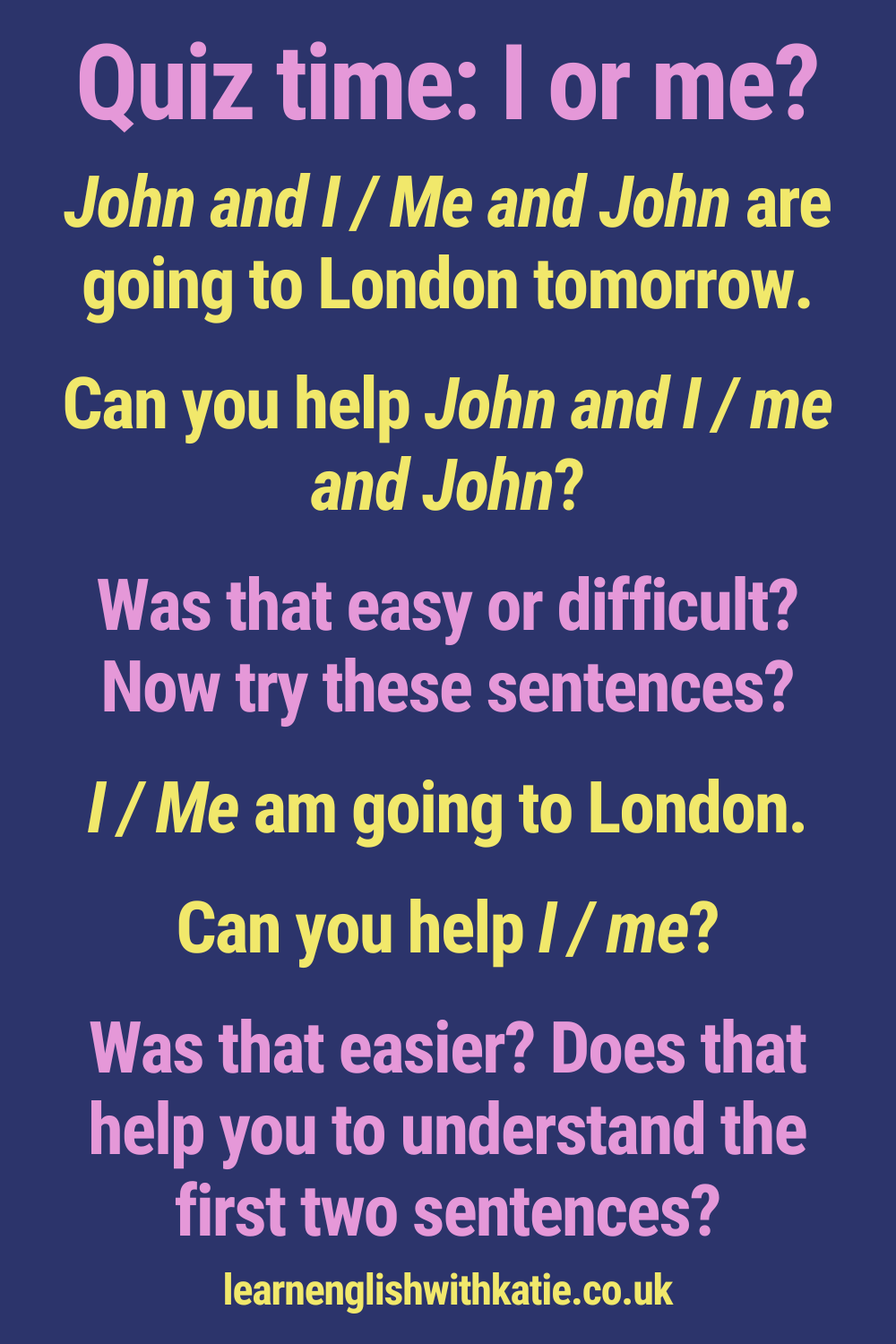|
Try the quiz and then check your answers:
Answers:
First of all, we use “I” as the subject. The subject is usually before the verb. It’s the person (or thing) that performs the action described by the verb. I am going to London. We use “me” as the object. The object is usually after the verb. It’s the person (or thing) that is affected by the action of the verb. Can you help me? Most learners have no difficulty with this but they get confused when there's a second person in the sentence. If you're trying to decide whether it's "I" or "me", try taking "John" out of the sentence to see what sounds right. Then it will be much more obvious whether to use "I" or "me". You might actually hear English people say "me and John" instead of "John and I". Some people would say that it is acceptable nowadays but others would disagree! It is a little more acceptable in informal speech than in writing. Personally, I think it's better to say "John and I are going to London." When I was a child, my mother corrected me if I said "me and John". She even explained the rule to me! I was probably only 6 years old and I still remember that conversation! We also use “me” after a preposition. Are you talking about me? Give that to me! Sometimes, we use “me” when actually “I” might seem more grammatical. Here are some situations like this. 1. In modern English, we DON’T say “It is I”. We say “It’s me”. For example, I often say “Hello, it’s me” when I phone my Mum. Similarly, I have a key to my parents’ house so if I let myself in, I might shout, “It’s only me!” when I arrive so they know I’m not a burglar! 2. If I’m describing a photo, I can say “This is me in front of the Eiffel Tower” or “This is me and my friend in Paris”. I might write “Me and Carol in Paris”. 3. When a teacher asks her class, “Who would like to help me?” or “Who knows the answer?” the children might say “Me!” They might also say “I do” but they would never say “I”. 4. After “than”: She speaks English better than I do. She speaks English better than me. She’s taller than I am. She’s taller than me. (“She’s taller than I” might be considered correct by some people but it sounds strange to me and it’s definitely not common in twenty-first-century English!) This can sometimes be a problem. The following sentence is ambiguous (not clear): She likes him more than me. Does this mean “She likes him more than she likes me” or “She likes him more than I like him”? It could mean either! The meaning might be obvious from the context or we would make it clearer by stressing certain words: She likes HIM more than ME. = She likes him more than she likes me. SHE likes him more than ME. = She likes him more than I like him. If it’s the second meaning you want, it might be clearer to say: She likes him more than I do. Would you like free lessons and tips for how to learn English sent to your email inbox? Click the button below and sign up for my newsletters:
0 Comments
Your comment will be posted after it is approved.
Leave a Reply. |
About the blogFollow the blog for mini lessons and tips on how to improve your English. Categories
All
Archives
July 2024
|

 RSS Feed
RSS Feed
